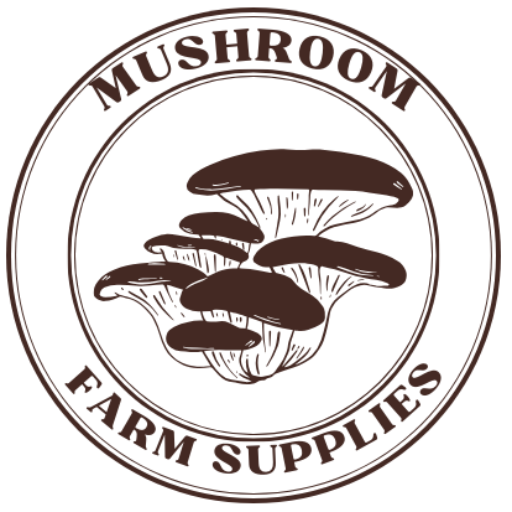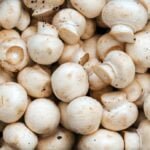Bunnings Coco Coir
Bunnings Coco coir is an eco-friendly and sustainable various to peat moss that’s excellent to be used alone or mixed with current backyard soil. It holds water properly whereas concurrently serving to aerate clay-rich buildings.
Coir can are available compressed blocks and bricks like this one from CANNA that have to be rehydrated earlier than use, in addition to expandable baggage like this Fox Farm model.
Product Description
Coco coir is an eco-friendly substrate produced from fibrous materials from coconut manufacturing. As such, it makes a wonderful sustainable substrate that’s good to be used each indoors and outdoor for gardening purposes; each in potted gardens in addition to hydroponic gardening methods. Coco coir provides superior air circulation and moisture retention properties than conventional soil-based composts and soils, making it appropriate for hydroponic gardening methods.
Easy to combine with CANNA potting combine and different gardening merchandise, it makes a simple transition from conventional rising mediums. Furthermore, mixing it into current soils helps enhance drainage and aeration whereas mixing it with rockwool can support in higher plant rootedness.
Bunnings coco coir excels at keeping moisture levels consistent and providing healthy growing environments for roots to flourish in. It can maintain as much as 10x its weight in water, which means plant roots by no means change into dehydrated.
Coir can take up and launch vitamins extra readily than most substrates, making it very environment friendly at feeding vegetation. When deciding on vitamins to your crop, ensure that they embrace particular sorts for optimum progress.
Coir substrate is much less more likely to compact than different choices, making it appropriate for conditions with restricted area. Furthermore, its wonderful insulator qualities allow it to maintain temperatures cool within the rising space; this may permit roots to breathe freely and improve resistance and tolerance towards excessive situations.
Some backyard suppliers promote mixes particularly created to work with coco coir, whilst you can simply create your individual utilizing only a few substances. It is essential that the coco coir you utilize has been aged correctly as improperly aged materials can launch salts that kill vegetation.
Bunnings shares coir that has been totally sterilized earlier than being offered to their prospects, offering you with an assurance of its purity. A certificates proving this truth also needs to defend you towards buying an unsanitary product with dangerous pathogens current. Choosing organic-certified manufacturers will additional assure high quality rising media merchandise.
Product Specifications
Coco coir is an eco-friendly plant-growing substrate. Produced as a byproduct of the coconut business, coco coir can be utilized as both a soil modification or hydroponic rising medium for vegetation and hydroponic rising methods. Coco coir additionally helps stabilize soil by stabilizing erosion; with impartial pH and excessive ranges of carbon, this long-lasting, easy-to-use medium is appropriate for flower baskets, container gardens, and vegetable gardens alike.
There are many manufacturers and sorts of coco coir obtainable available on the market, making it necessary to pick one with good manufacturing practices to make sure constant high quality and consistency. Also necessary: aged coco coir have to be aged earlier than getting used as a rising medium in any other case salts might escape and kill any vegetation used as soil modification.
Coco coir of top of the range ought to include low salt ranges and be washed a number of instances to rid itself of extra salts, be freed from mould and mildew progress and provide ample drainage and root aeration capabilities. Furthermore, further calcium and magnesium dietary supplements could also be useful as coco coir usually lacks these important parts.
Most manufacturers of coco coir come packaged as compressed bricks or bales that make it straightforward for storage and transport, but require some labor from growers earlier than it may be used – this will likely contain submerging it in sizzling water for a number of hours or soaking it with freshwater for a number of minutes previous to utilizing.
bunnings has a number of wonderful decisions of coco coir. The excellent product would most likely be the CANNA Coco Peat bricks, product of high-quality coco pith and fibers and low in salt content material – good for freshmen. If the bricks cannot be discovered, General Hydroponics CocoTek Bale may additionally present an efficient mixture of pith and fibers – one other low salt content material choice with loads of pith/fiber ratio!
Product FAQ
Coconut coir (or coco peat) is an modern various to conventional soil media like peat moss. Coir consists of fibers from between the outer shell and internal core of coconuts. Once thought-about waste materials, now coir has change into the go-to hydroponic rising medium – much less more likely to compact than different substrates while providing adequate moisture retention, whereas supporting wholesome roots progress whereas aiding drainage.
Coir fibers are naturally sterile, so they will not harbor weeds that might compete for sources in your soil. But earlier than utilizing, they need to first be rehydrated; this requires greater than merely including water; due to this fact it’s wiser to pick merchandise with stringent harvesting and processing requirements because it may alter its efficiency over time. Coir shouldn’t exchange important soil vitamins; proceed including them as you usually would.
Rehydratation includes inserting the brick in a container giant sufficient for it to increase to about 5-7 instances its preliminary measurement after totally saturated with heat water (3-4 litres ought to suffice), leaving for 15-Half-hour, then fluffing up like common soil.
Coir turns into fluffy when rehydrated, but nonetheless accommodates no pure soil vitamins – making it a wonderful choice for brand new growers who want to take a look at out hydroponic methods with out the funding of pricey gear or full backyard setup. However, bear in mind that you will want to amend the soil usually utilizing hydroponic fertilisers as a way to obtain most progress and uptake of important vitamins.
Coco coir have to be obtained from a dependable provider, as poor high quality can include pathogens that hurt vegetation and hurt your backyard. When aged and handled improperly, salts launched can kill off vegetation – to keep away from this pitfall it is clever to search for merchandise labelled natural and guarantee producers adhere to finest practices; moreover you might require calcium and magnesium dietary supplements attributable to low content material of this nutrient in coco coir merchandise.
Is coco peat and coco coir the same?
Coco peat and coco coir are two terms that are often used interchangeably, but they actually refer to slightly different things.
Coco peat is a byproduct of coconut fiber processing and is a fine, soil-like substance that is often used as a soil amendment. It is also known as coir dust, coir pith, or coir fiber pith. Coco peat is rich in nutrients and has excellent water retention properties, making it an ideal medium for growing plants.
Coco coir, on the other hand, is the fibrous material that makes up the outer husk of a coconut. It is processed into a coarse, fibrous material that is used for a variety of purposes, including gardening and landscaping. Coco coir is often used as a soil amendment to improve soil structure, water retention, and nutrient availability.
What is the difference between coco coir and coconut coir?
There is no difference between coco coir and coconut coir - they refer to the same material. "Coco coir" is just a shortened version of "coconut coir."
Coconut coir, or simply "coir," is the fibrous material that makes up the outer husk of a coconut. It is a natural and renewable resource that has become increasingly popular as a growing medium and soil amendment in recent years. Coir is a byproduct of the coconut industry and is typically produced in countries where coconuts are grown, such as India, Sri Lanka, and the Philippines.
Coir is processed into a variety of products, including coco coir, which is a type of coir that has been ground into a fine, fibrous material. This makes it ideal for use as a growing medium, as it has excellent water retention properties and can hold onto nutrients for plants
What is cheaper than coco coir?
There are several alternatives to coco coir that can be cheaper and still effective as a growing medium or soil amendment. Here are a few options:
Peat moss: Peat moss is a common alternative to coco coir. It is a natural and renewable resource that is harvested from bogs and marshes. It has similar water retention properties to coco coir and is often used as a soil amendment.
Vermiculite: Vermiculite is a naturally occurring mineral that is often used as a growing medium or soil amendment. It has excellent water retention properties and can help improve soil structure.
Perlite: Perlite is a lightweight volcanic rock that is often used as a growing medium or soil amendment. It has good drainage properties and can help improve soil aeration.
Rice hulls: Rice hulls are a byproduct of rice processing and can be used as a growing medium or soil amendment. They have good drainage properties and can help improve soil structure.
It's worth noting that the cost and availability of these alternatives may vary depending on your location. It's always a good idea to research and compare prices before making a purchase to ensure you're getting the best deal.




